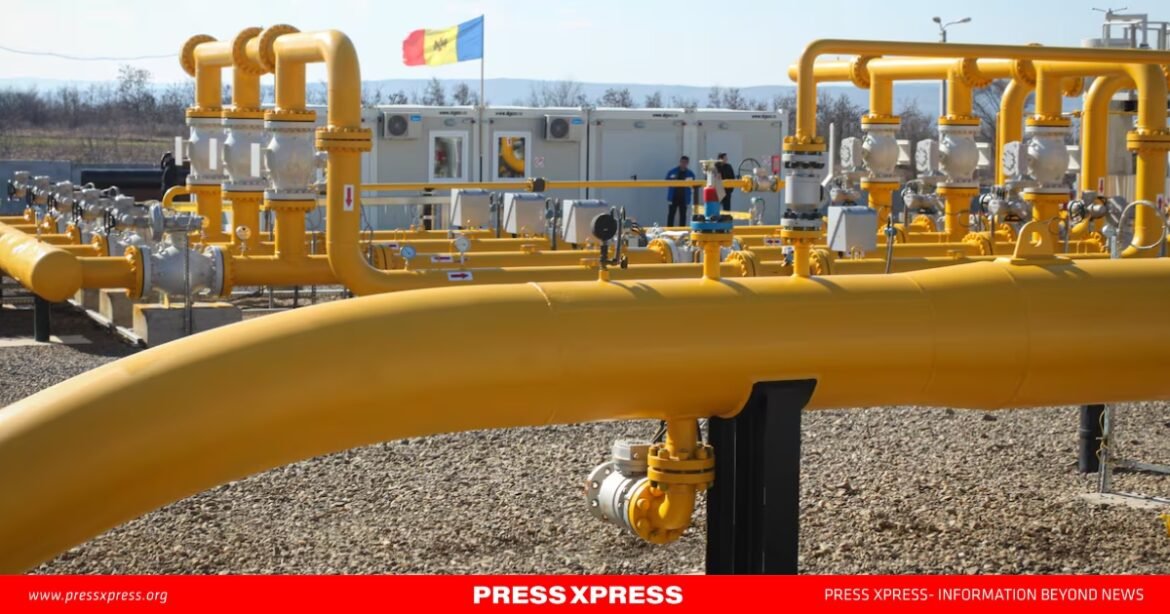On a chilly morning in Moldova’s capital, postal worker Petru Murzin stands uneasy, dreading the prospect of a harsh winter without heat or light. His fears are shared by many as the country faces a looming energy crisis, triggered by Russia’s decision to halt gas supplies starting January 1.
Russia’s state energy giant Gazprom claims Moldova owes $709 million for past supplies, a figure Moldova’s pro-Western government vehemently disputes, accusing Moscow of using energy as a weapon to destabilize the European Union candidate country.
“I feel we’ve entered a crisis that will be hard to resolve,” Murzin said in Chisinau. “Price hikes are one thing, but having no gas at all is a completely different matter.”
Transnistria at the Center of the Crisis
The gas cutoff will impact the Kuciurgan power plant, Moldova’s largest, located in the pro-Russian breakaway region of Transnistria. This gas-powered facility supplies a significant portion of Moldova’s electricity. Transnistria, home to about 470,000 people—many of whom are Russian citizens—has already declared a state of emergency, fearing widespread energy shortages.
Moldova’s parliament also imposed a state of emergency on December 13, anticipating severe disruptions to energy supplies that could lead to a humanitarian crisis, particularly in Transnistria. Observers predict that residents from the separatist region may travel en masse to Moldova in search of basic amenities during the freezing winter months.
Political and Humanitarian Fallout
Cristian Cantir, an international relations expert, sees Moscow’s actions as a calculated move to exploit the potential humanitarian crisis in Transnistria, straining Moldova’s resources and amplifying political tensions.
“This could stoke fears of violent conflict and fuel pro-Russian political narratives,” Cantir said, pointing to Moldova’s upcoming parliamentary elections in 2025, where energy prices and economic hardship will likely dominate the agenda.
Prime Minister Dorin Recean has accused Russia of weaponizing energy, stating the alleged debt cited by Gazprom was invalidated by an international audit. “This decision confirms the Kremlin’s intent to leave Transnistria without light or heat in the dead of winter,” Recean said.
President Maia Sandu echoed these concerns, calling for unity and energy conservation. “The Kremlin is again using energy blackmail to destabilize Moldova, influence elections, and derail our European journey,” she said.
Energy Conservation and Long-Term Plans
In response to the crisis, Chisinau has introduced energy-saving measures, including reducing public and commercial lighting and urging businesses to operate during off-peak hours. Residents like Nicoleta Neagu, who works abroad, expressed hope that Moldovans will take conservation seriously.
“We’ll probably have to save power until a solution is found,” Neagu said.
Meanwhile, Moldova has worked to reduce its dependence on Russian gas, sourcing supplies from European markets. However, replacing Transnistria’s cheaper electricity with EU imports will be costly, said presidential adviser Olga Rosca.
Rising Concerns Among Citizens
For residents like Iuliana, a 30-year-old Chisinau native who works remotely, the stakes are high. Power outages would disrupt her work, and a lack of heating could make life unbearable.
“We’re afraid, but at least the weather isn’t too cold yet,” she said. “We’ve faced many crises before, but this is the first time we’re dealing with such an energy shortage.”
The situation also brings back memories of Moldova’s struggles during Russia’s war in Ukraine, when missile strikes caused major power outages. At the time, Moldova relied heavily on Russian gas but has since diversified its sources.
Calls for Strategic Action
As the crisis deepens, Moldova is exploring legal avenues to regain control of key energy assets. Prime Minister Recean has asked the justice ministry to review legislation for reclaiming “strategic assets” like Moldovagaz, the country’s primary gas operator in which Gazprom holds a majority stake.
Gazprom, meanwhile, has reserved the right to escalate its actions, including terminating its contract with Moldovagaz.
For Murzin and others in Moldova, the uncertainty ahead is daunting. “I think cars will stretch for kilometers at the border,” he said, anticipating an influx of Transnistrians seeking refuge. “Many people will come here, hoping for warmth.”
As temperatures drop and tensions rise, Moldova braces for what could be one of its most challenging winters yet.


